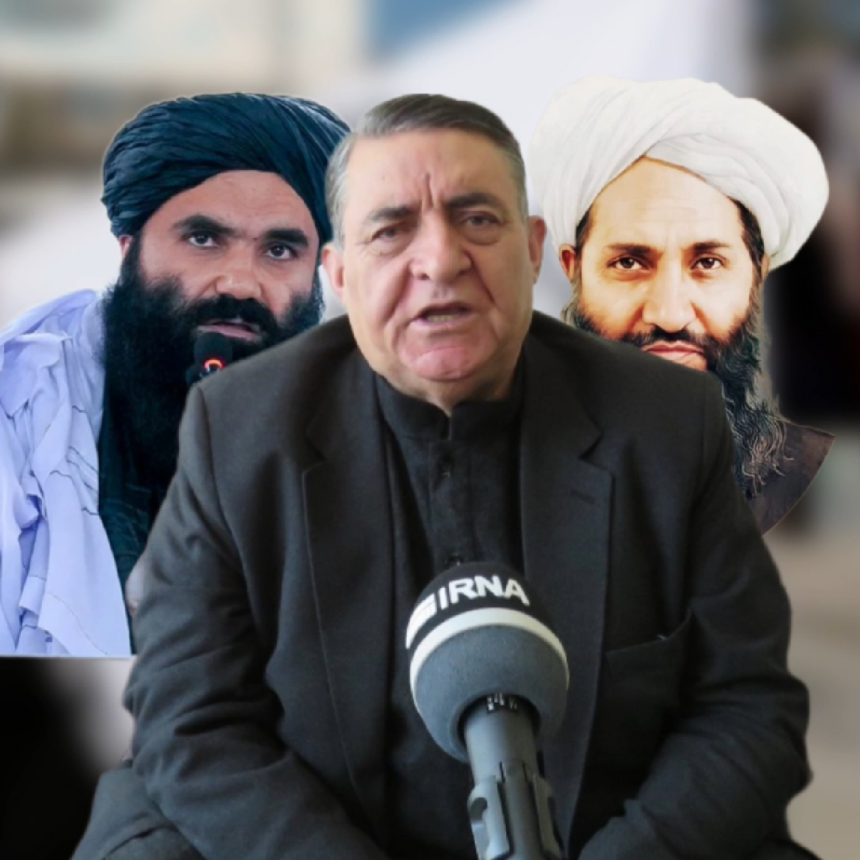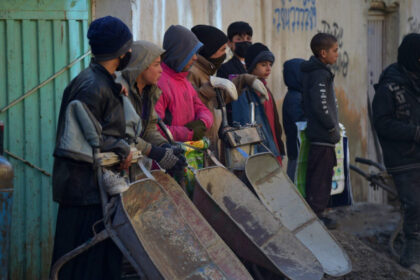RASC News Agency: Ahmad Saeedi, a prominent Afghanistani political analyst, has warned that recent developments within the Taliban indicate the collapse of hopes for internal reform. Saeedi argues that recent public remarks made by Sirajuddin Haqqani Minister of Interior Affairs and a key figure often described as a “moderate” within the group represent not just personal allegiance to Taliban supreme leader Hibatullah Akhundzada, but the symbolic defeat of any faction within the Taliban that once hinted at ideological flexibility or political pragmatism. Writing on his official Facebook page, Saeedi reflected on the disillusionment many Afghans now feel toward Taliban figures like Haqqani and Abbas Stanekzai, who were once perceived as potential agents of change within the regime. “There was cautious optimism,” Saeedi wrote, “that these individuals might at least challenge the Taliban’s hardline policies perhaps reopen girls’ schools or initiate a national reconciliation process. But those hopes are rapidly vanishing.”
According to Saeedi, Haqqani’s recent public glorification of Akhundzada praising him as a leader “beyond human capacity” has crushed remaining optimism for moderation or structural reform from within. For many observers, these remarks are not merely sycophantic but evidence of full ideological alignment with a leadership model that is increasingly absolutist, theocratic, and intolerant of dissent. “This is not just a speech it is a declaration of surrender by the so-called moderates,” Saeedi asserted. Saeedi describes the Taliban’s ruling structure as a fusion of religious, political, military, and intelligence power, tightly concentrated in the hands of the elusive Akhundzada and his inner circle in Kandahar. In such an environment, even internal dissent is swiftly muted. Saeedi refers to this dynamic as a “silent tragedy” a slow but systematic elimination of alternative viewpoints from within the regime.
He contends that the Taliban’s current framework is inherently allergic to internal plurality. As power is increasingly monopolized by an ultraconservative clique, prospects for any meaningful change from within have all but evaporated. “This system cannot tolerate diversity of thought,” he warned. “If this trajectory continues, internal reform will become not just unlikely but impossible.” Saeedi urges Afghanistani society, particularly its civil and political actors, to confront this reality with clarity and urgency. “The nation must look at the Taliban not through the lens of misplaced hope, but through the hard truth of experience,” he wrote. “Afghanistan needs to start seriously considering alternative pathways for change beyond this group.”
Figures such as Haqqani, once seen engaging in international forums and hinting at flexibility, are now viewed by analysts as fully co-opted by the Taliban’s autocratic leadership. Saeedi suggests that Haqqani’s new posture is not coincidental but calculated an indication that any remaining influence he might have had to steer the Taliban toward compromise or reform has been neutralized. “Haqqani’s transformation from ‘moderate’ to mouthpiece illustrates a hard lesson: the Taliban is not reformable from within,” Saeedi concluded. The Taliban leadership has not officially responded to Saeedi’s analysis. However, the group continues to promote a rigid line of absolute loyalty to Akhundzada and firmly rejects any internal or external pressure for structural change. Their official position remains one of complete obedience, equating criticism with betrayal and reform with subversion.
International observers echo Saeedi’s concerns. Numerous foreign policy experts and humanitarian organizations have repeatedly stated that any serious change in Taliban policy particularly on women’s rights, education, and governance will require coordinated domestic resistance and sustained international pressure, neither of which currently appears imminent. As Afghanistan’s future remains hostage to a regime increasingly intolerant of its own members, Saeedi’s warning underscores a bitter truth: the Taliban’s internal politics are not evolving they are calcifying into a repressive orthodoxy that allows no room for even the faintest whisper of reform.






